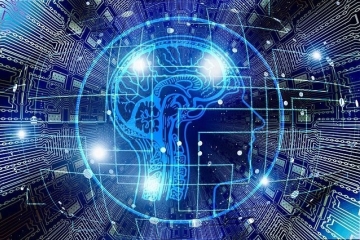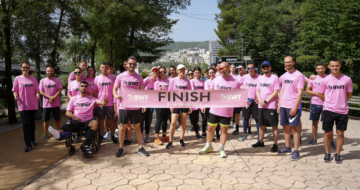Artificial intelligence detects signs of blindness

MONA, a technological spin-off of KU Leuven and research institute VITO, has developed artificial intelligence that can detect the first signs of blindness.
MONA, a technological spin-off of KU Leuven and research institute VITO, has developed artificial intelligence that can detect the first signs of blindness.
MONA, a technological spin-off of KU Leuven and research institute VITO, has developed artificial intelligence that can detect the first signs of blindness. Starting this year, the technology will be available to hospitals and ophthalmologists.
The technology is currently focused on diabetic retinopathy, a condition caused by diabetes that causes the blood vessels of the retina to become damaged. In the long term, the disease can lead to blindness. An annual eye examination is necessary to detect the condition in time, but not all patients get tested enough.
"Our technology allows us to detect the risk of diabetic retinopathy with a single eye scan," says Olivier Ménage, CEO of MONA. "We can also detect the disease from a very early stage, and the technology is cost-effective. The accessibility for screenings is increased: that is why it is such an important innovation."
Currently, the research team is improving the technology so that it can eventually detect glaucoma as well. For this, it could receive the European quality label CE in 2023, which it already has for detecting diabetic retinopathy.
In the future, numerous other diseases could even be detected by unleashing artificial intelligence on eye scans, Ménage makes the case. These include Alzheimer's disease and cardiovascular conditions, where links can be seen with the state of a person's eyes.
Latest insights & stories

A Global Movement: The World Unites in a Pink Pledge for Clean and Sustainable Water
5,000 participants. 32 countries. €30,000 funds raised. And that's just the beginning.
Picture this: One step that sends ripples across the globe, transforming lives and creating waves of change. You might wonder, how can such a simple action for most of us have such a profound impact?

Sustainability and circularity in construction
Join us in transforming the future of construction, creating buildings that not only stand the test of time but also contribute to a healthier planet!

RainTunes: Shower scenarios for the soul
Light, hearing, smell, and touch: Together with experts, we have developed sensuous scenarios that turn showering into an individual experience. Whether you want to prepare for the day ahead or relax after working out. Whether you want to refresh after a day’s work or unwind at the end of the evening: RainTunes surprises with multisensory experiences.*
*Currently available only in Germany and Austria.